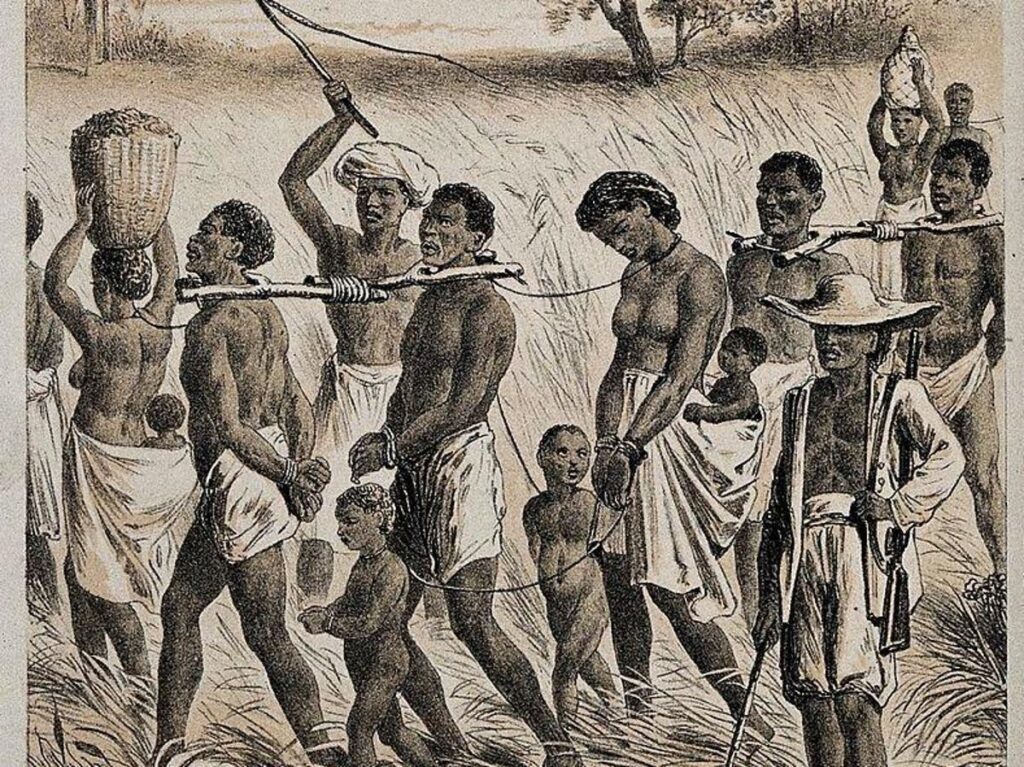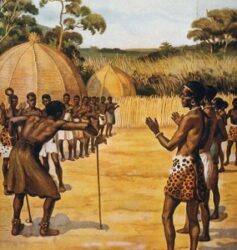Honoring the Millions Who Suffered & Acknowledging the Legacy of Slavery

March 25th marks the International Day of Remembrance of the Victims of Slavery and the Transatlantic Slave Trade, a solemn occasion dedicated to honoring the millions of African men, women, and children who were forcibly taken from their homelands and subjected to centuries of inhumane treatment. This day serves as a reminder of the brutal realities of the transatlantic slave trade, its lasting impact on the African diaspora, and the resilience of those who fought for freedom.
The Transatlantic Slave Trade:
A Dark Chapter in HistoryFor over 400 years, the transatlantic slave trade saw an estimated 12 to 15 million Africans forcibly transported across the Atlantic Ocean to work under brutal conditions in the Americas and the Caribbean. Enslaved Africans were sold, exploited, and stripped of their identities, while European colonial powers profited from their suffering.
The triangular trade system operated between Europe, Africa, and the Americas, with European traders exchanging goods for captured Africans, who were then shipped across the Middle Passage—a horrific journey marked by disease, abuse, and death. Many did not survive the voyage, and those who did faced unimaginable cruelty on plantations and in households where they were forced to labor without freedom.
The Abolition Movement & the Fight for Freedom
The fight to end slavery was long and difficult. Africans resisted through revolts, rebellions, and acts of defiance, while abolitionists across the world campaigned for the end of the trade.
🔹 In 1807, the British Parliament passed the Abolition of the Slave Trade Act, making it illegal for British ships to transport enslaved people. However, slavery itself was not abolished in the British Empire until 1833.🔹 In 1865, slavery was officially abolished in the United States with the passage of the 13th Amendment.
🔹 Many Latin American and Caribbean nations, including Brazil, Haiti, and Cuba, abolished slavery throughout the 19th century, but its effects remained deeply embedded in society.
The end of the transatlantic slave trade did not mean true freedom for those affected. Systemic racism, discrimination, and economic inequality persisted long after slavery was outlawed, creating barriers that are still being addressed today.
Why March 25th Matters: The Importance of Remembrance
Established by the United Nations in 2007, March 25th is a day to honor the victims of slavery, educate future generations, and promote justice for people of African descent worldwide. The annual commemoration serves as:
✅ A time for reflection on the atrocities committed and the strength of those who endured enslavement.
✅ A reminder of the long-lasting effects of slavery, including racism, economic disparities, and social injustices still affecting the African diaspora today.
✅ A call to action to ensure that the legacy of slavery is never forgotten and that the world continues to fight against modern-day slavery, human trafficking, and racial injustice.
The Legacy of Slavery in the Modern World
Though slavery was officially abolished, its effects still shape societies today. The descendants of enslaved Africans continue to face:
🔹 Racial and economic inequality – Disparities in wealth, education, and healthcare remain stark in many countries with a history of slavery.
🔹 Systemic racism and discrimination – From police brutality to employment gaps, the legacies of oppression persist.
🔹 Cultural erasure and identity loss – Many African-descended communities struggle to reconnect with their ancestral heritage due to centuries of forced assimilation and displacement.By acknowledging these challenges, we can work toward building a more just and equitable future for all people of African descent.
Honoring the Past, Building the Future
March 25th is not just about remembrance—it’s about action. It is a day to educate, advocate, and uplift Black voices and African heritage worldwide. Whether through school curriculums, public discussions, or cultural programs, we must ensure that the stories of those who suffered are never erased.
As we honor the past, let’s commit to fighting racism, inequality, and injustice, ensuring that the sacrifices of millions were not in vain.
We Remember. We Honor. We Rise.







